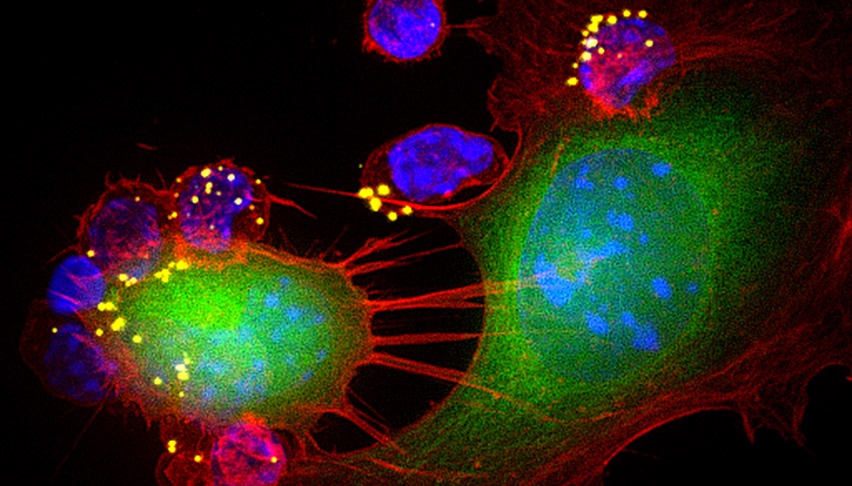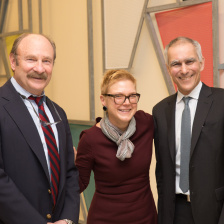
Irvine Lab researchers reprogram T cells to improve their ability to recognize and destroy cancerous invaders. Nanoparticle-laden T cells approach and attach to melanoma tumor cells (green), inhibiting their ability to grow. When the particles (yellow) are released, they recruit surrounding T cells to join the biological battle and wipe out the enemy. Credit: Sudha Kumari, Yiran Zhang. (2015 Image Awards winner)
Every advance at the bedside started as a question at the bench: why? or what if? At the Koch Institute, we ask bold questions that push the boundary lines of what we know about cancer, or of what’s possible in detection, treatment, and monitoring. The Koch Institute Frontier Research Program is grounded in the premise that a little seed funding can have a big impact in addressing these ground-breaking questions, and getting these early-stage projects and collaborations into the research pipeline.
Evaluated by MIT scientists and engineers and funded via a competitive annual awards process, these proof-of-concept projects allow our researchers to challenge themselves and the status quo. With the preliminary data they collect, the prototypes they build, and the model systems they develop, Frontier Research teams are better positioned to secure more substantial funding, launch crucial clinical and industry partnerships, or start their own companies to move their work toward the clinic.
These advances are supported by the Koch Institute Frontier Research Fund, where individuals who understand the importance of investing in bold ideas can pool their gifts to support the future they want to see for cancer research. Several big ideas supported early on by the Koch Institute Frontier Research Program are now in the clinic, in trials, or in commercial development—and many more big ideas are waiting in the pipeline.



